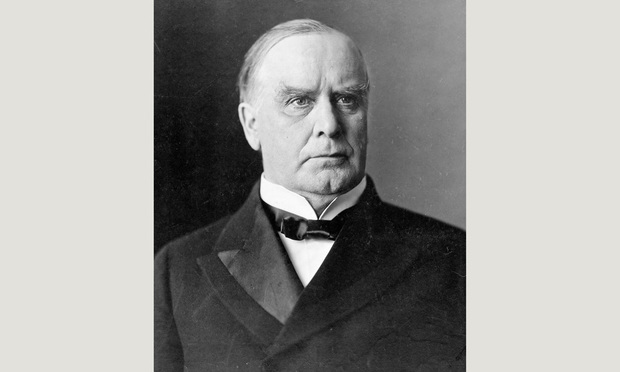With the aggressive pace of technological change and the onslaught of news regarding data breaches, cyber-attacks, and technological threats to privacy and security, it is easy to assume these are fundamentally new threats. The pace of technological change is slower than it feels, and many seemingly new categories of threats have actually been with us longer than we remember. Nervous System is a monthly blog that approaches issues of data privacy and cybersecurity from the context of history—to look to the past for clues about how to interpret the present and prepare for the future.
When William McKinley won the nomination to be the Republican candidate for the 1896 presidential race, conventional wisdom had it that the former Ohio governor had effectively won the White House. That presumption soon crumbled. The Democrats selected fiery populist William Jennings Bryan as their choice. A magnetic speaker, Bryan promised that if the U.S. abandoned the gold standard, economic inequality and hard times would be a thing of the past. McKinley was a stark contrast—he was a modest man who tended to avoid the spotlight, and his insistence on “sound money” was difficult to express in anything other than dry and complicated terms.
This content has been archived. It is available through our partners, LexisNexis® and Bloomberg Law.
To view this content, please continue to their sites.
Not a Lexis Subscriber?
Subscribe Now
Not a Bloomberg Law Subscriber?
Subscribe Now
LexisNexis® and Bloomberg Law are third party online distributors of the broad collection of current and archived versions of ALM's legal news publications. LexisNexis® and Bloomberg Law customers are able to access and use ALM's content, including content from the National Law Journal, The American Lawyer, Legaltech News, The New York Law Journal, and Corporate Counsel, as well as other sources of legal information.
For questions call 1-877-256-2472 or contact us at [email protected]


 U.S. President William McKinley, circa 1900. Credit: Library of Congress via Wikimedia Commons.
U.S. President William McKinley, circa 1900. Credit: Library of Congress via Wikimedia Commons.




